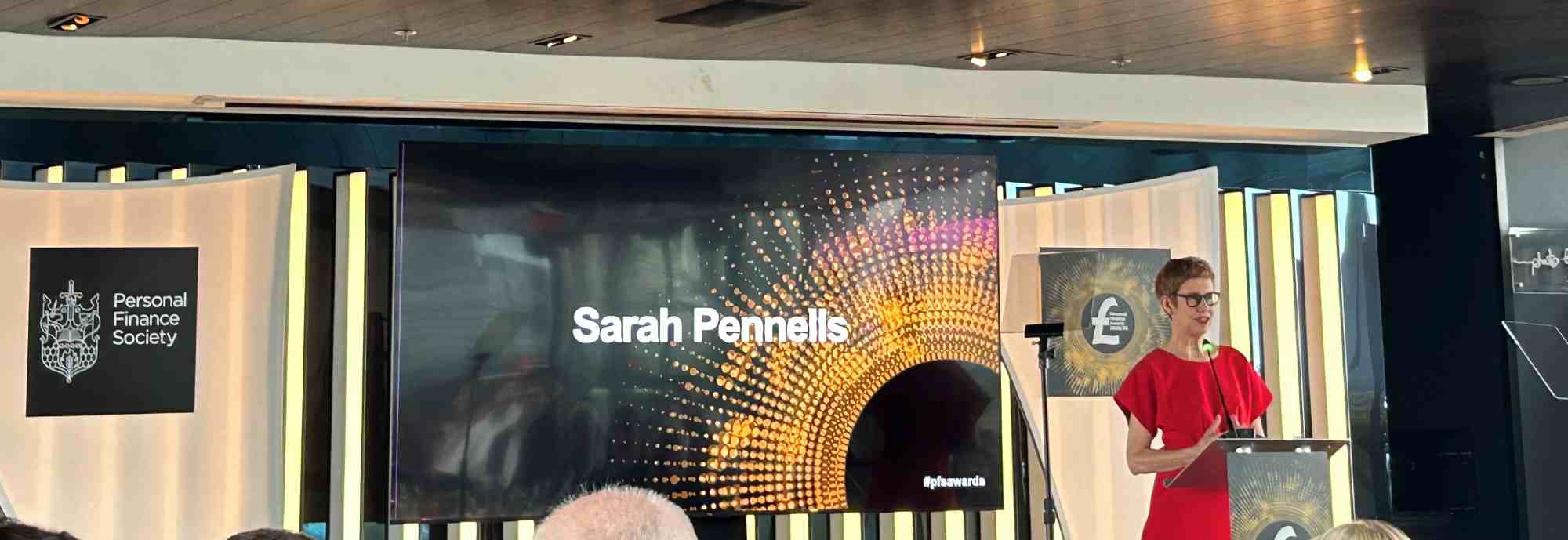The investment company’s findings show that people who have poor financial literacy are significantly less likely to have savings or a pension than people on similar incomes who have high financial literacy. This suggests that better financial education in schools could be a key lever of increased social mobility.
abrdn, the Edinburgh-headquartered, global investment company, has penned an open letter alongside two of its charity partners, MyBnk and the Just Finance Foundation, to The Rt Hon Bridget Phillipson MP, Secretary of State for Education. The letter calls for action to address the UK’s low levels of financial education.
People on low and middle incomes[2] with poor financial literacy hold less in their savings than those earning a similar amount with high financial literacy, abrdn found.
Other findings include:
- When it comes to pensions, lower earners with poor financial literacy experience a ‘pension penalty’ of £10,000. That’s how much less they have, in median terms, in their retirement pots compared to lower earners with high financial literacy. This latter group are also far more likely to have a pension in the first place.
- Similar trends emerged amongst higher earners, and the numbers are life changing. Those with low financial literacy suffered a pension penalty of £87,500 less in their retirement pot when compared to higher earners with high financial literacy, who were also more likely to have a pension to start with.
- Two-thirds (66%) of people on low incomes with poor financial literacy have savings, compared with four-fifths (79%) of people in the same earnings bracket who have high financial literacy. Even when they do have savings, they hold on average £5,500 less than those with high financial literacy.
- 77% of people on middle incomes with poor financial literacy have savings – compared with 88% in the same earnings bracket with high financial literacy. The average gap between these groups when they do hold savings is £13,500.
- Even those on high incomes are more likely to have savings and a pension if they are more financially literate. 80% of people with a high income but low financial literacy have savings, compared with 94% for those with high financial literacy. Some 41% of high earners with low financial literacy have a pension, compared to 66% of high earners with high financial literacy.
Sarah Moody, Chief Corporate Affairs and Sustainability Officer, abrdn, says:
“It is extremely difficult to unpick the impact poor financial literacy has on people’s economic outcomes from other, related factors – such as their socioeconomic background. However, our research found that those with poor financial literacy are worse off, even when earnings are taken into account. Financial education in schools, done well, could be a key lever to help build the nation’s long-term financial resilience and improve social mobility. It’s often said that ‘money makes money’, but financial education is key to keeping, and growing it.”
| % of people that hold savings | Median amount in savings | % of people that hold pensions | Median amount in pensions | |
| Low income (<£30k)Low financial literacy | 66% | £2,000 | 30% | £7,500 |
| Low incomeHigh financial literacy | 79% | £7,500 | 43% | £17,500 |
| Middle income (£30-60k)Low financial literacy | 77% | £4,000 | 55% | £37,500 |
| Middle income High financial literacy | 88% | £17,500 | 66% | £37,500 |
| High income (£60k+)Low financial literacy | 80% | £87,500 | 41% | £87,500 |
| High incomeHigh financial literacy | 94% | £37,500 | 66% | £175,000 |
The pension figures do not include those with defined benefit pensions.
abrdn’s research also revealed strong public support for financial education in schools. Consumers ranked it most important out of a list of school subjects, which included languages, PE, music and sex and health education.
The findings follow on from abrdn’s Savings Ladder Index, launched this July, which included the UK’s first-ever regular on-going barometer of financial literacy among UK adults.
Sarah Moody, Chief Corporate Affairs and Sustainability Officer, abrdn, added:
“These findings reinforce the need for an urgent intervention. At abrdn, we believe the Government should undertake a much-needed shake-up of financial education in schools as well as starting to officially measure financial literacy levels in the UK – just as 39 other countries already do. By solving this problem, we can support more people to feel financially secure and become long-term savers and investors. There would be huge economic benefits to this too, unlocking millions of pounds of capital and reducing pressure on the state to support people into retirement. Just as we already encourage people to save to get on the property ladder, better financial education would be a key step in helping to build what we call a ‘Savings Ladder’ culture.”
In abrdn’s Savings Ladder Index, it asked respondents the Global Financial Literacy Excellence Centre’s ‘Big 3’ financial literacy questions*, which are used as an international standard for comparison. The research found that 44% of UK adults have poor financial literacy, extrapolating to 23.3 million UK adults.
The index also looked at people’s propensity to save and invest, based on a number of factors, as well as measuring average savings, investments and pension levels.
Financial education policy recommendations
To address the UK’s low levels of financial literacy, abrdn has called on Government to:
- Extend mandatory financial education to primary schools and Sixth Forms in England to ensure fewer young people miss out on a financial education.
- Integrate finance into relatable subjects, from maths, economics, citizenship and food tech. Scotland already integrate personal finance across the curriculum, and abrdn would like to see consistency across all four nations.
- Discuss a new GCSE and sixth form qualification (or equivalent as per exam systems in other home nations) that focuses on financial skills.
Sarah Wallace, Director of the Just Finance Foundation, said:
“This research not only underlines the chronic state of financial literacy in the UK, but also suggests that a shake-up of financial education in schools could have far reaching benefits for society. Being financially literate makes you financially better off, whatever your earnings level, showing that a little bit of knowledge goes a very long way when it comes to personal finances.”
Leon Ward, Chief Executive of MyBnk, said:
“The evidence is clear: financial fluency isn’t just a skill, it’s a necessity. This research further highlights the critical gap in our education system, where the absence of comprehensive financial education leaves people at risk of being left behind. At MyBnk, we believe that financial literacy should be considered a right for all, because the language of money is a language for life. We’ve seen first-hand how early financial education empowers young people, giving them agency to make informed decisions, avoid debt and build a more secure future. This is not just about improving individual outcomes, but about strengthening the financial resilience of society as a whole.”















